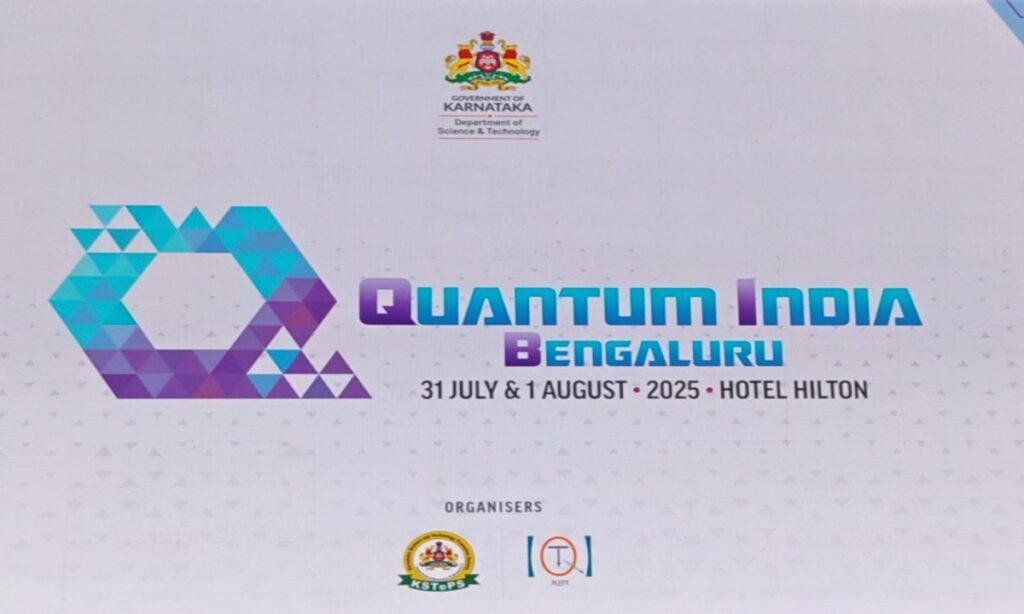A two-day summit, Quantum India, Bengaluru – 2025, was held in Bengaluru, Karnataka, from July 31 to August 1, 2025. The summit, based on the theme of “Building a Quantum Ecosystem: Qubits to Society”, was jointly organised by the Indian Institute of Science (IISc), Bengaluru, and the Government of Karnataka.
Chief Minister of Karnataka, Siddaramaiah, released a Quantum Roadmap document, which highlights the state’s plan to become a global quantum technology capital by 2035. It also lays out plans to build a $20-billion quantum economy.
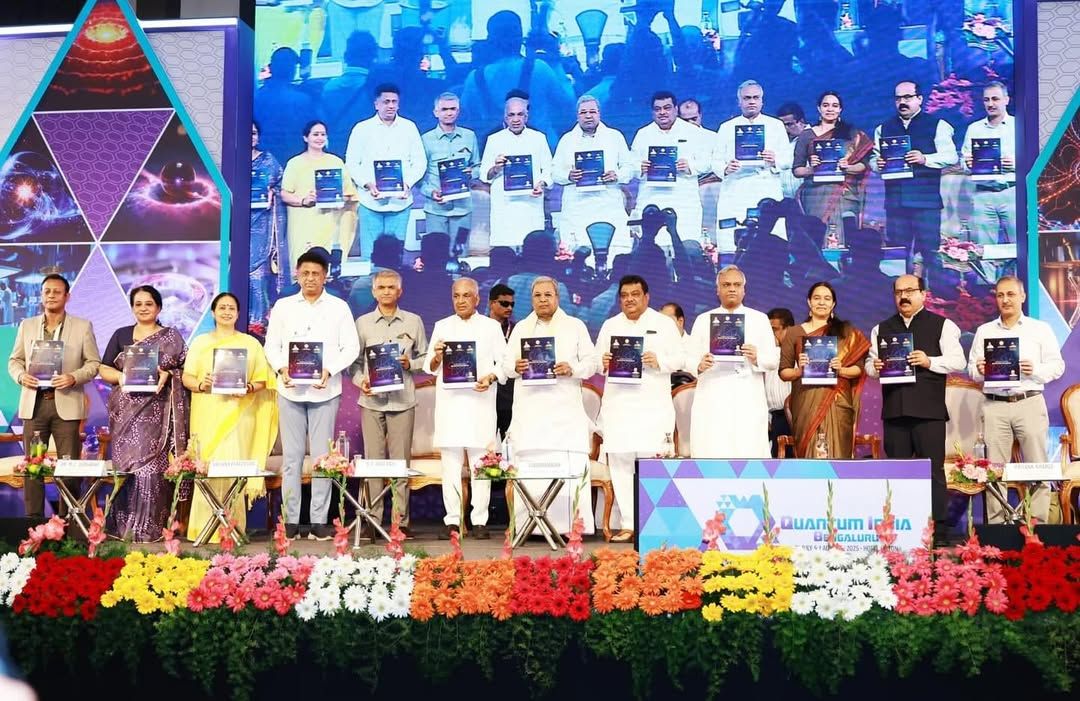
(Source – official Instagram account of QIB-2025, @quantum_india_bengaluru_summit)
The Government of Karnataka also recognised and felicitated Nobel laureates Prof. Duncan Haldane and Prof. David Gross for their unique contribution to the development of Quantum technology. Announcements relating to the building of a Quantum City near Bengaluru, a dedicated land parcel for companies working on the Quantum domain, and the inclusion of Quantum technology in the curriculum of higher education were also made.
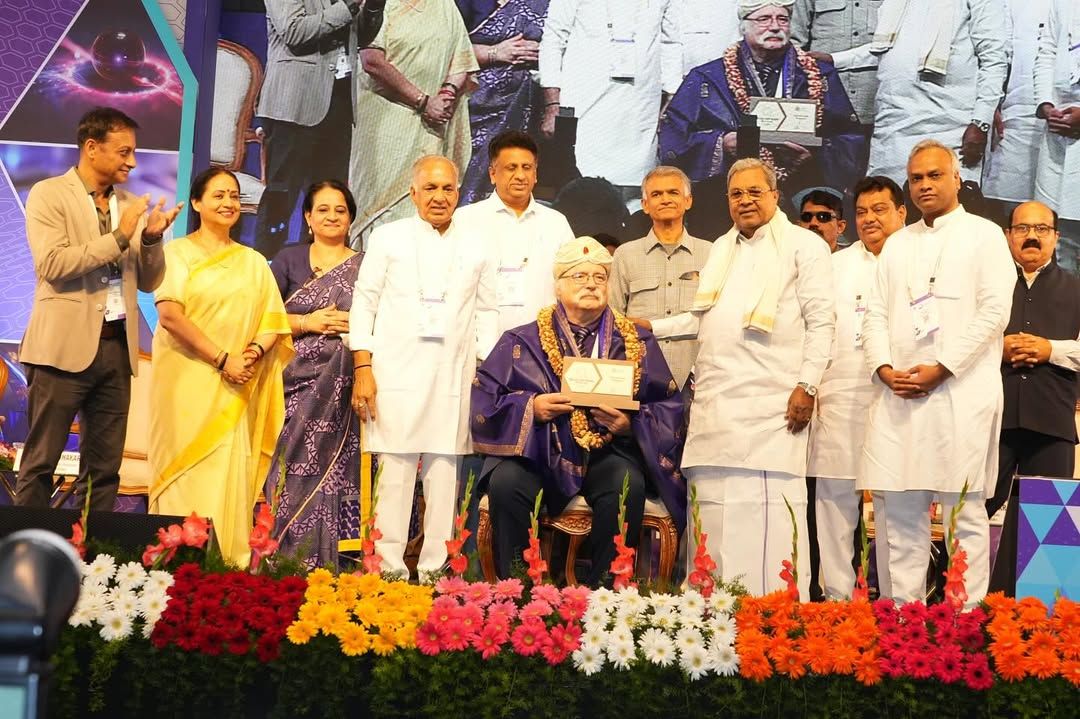
(Source – official Instagram account of QIB-2025, @quantum_india_bengaluru_summit)
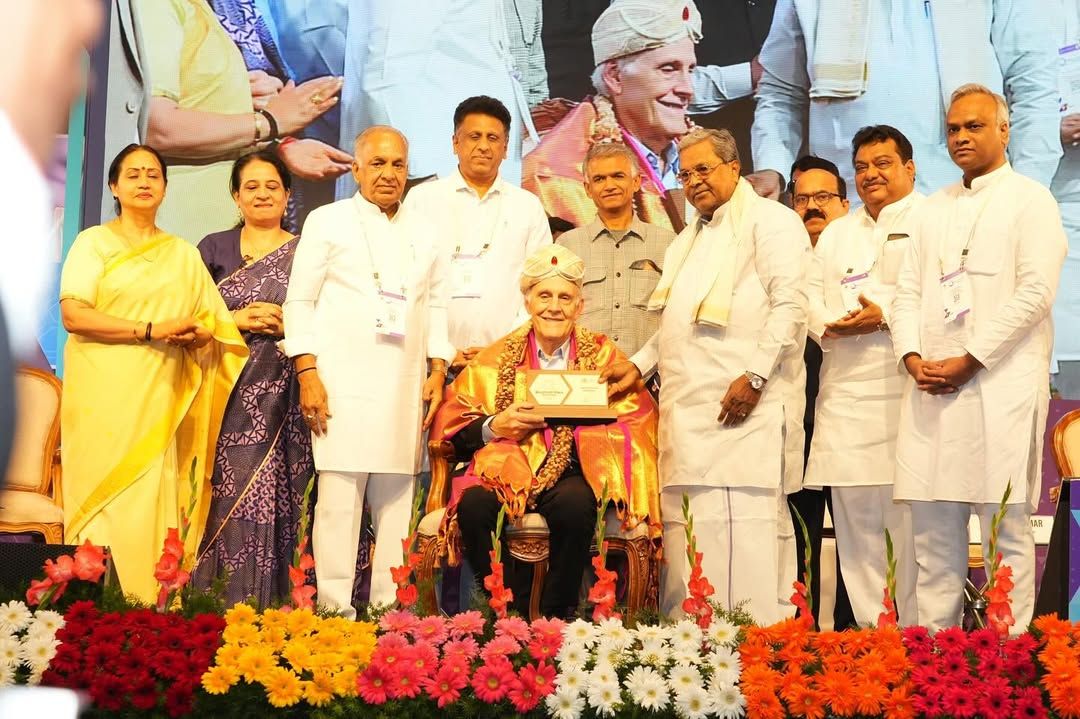
(Source – official Instagram account of QIB-2025, @quantum_india_bengaluru_summit)
37 exhibitors set up stalls, showcasing novel innovations related to Quantum technology. More than 1,900 delegates from 19 countries participated. 75 speakers in 24 sessions shared their Quantum research progress, views & opinions on building the resilient Quantum supportive ecosystem. The conference witnessed significant participation from academia, industry, policy makers, venture capitalists and entrepreneurs, and several panel discussions brought out the views of various stakeholders.
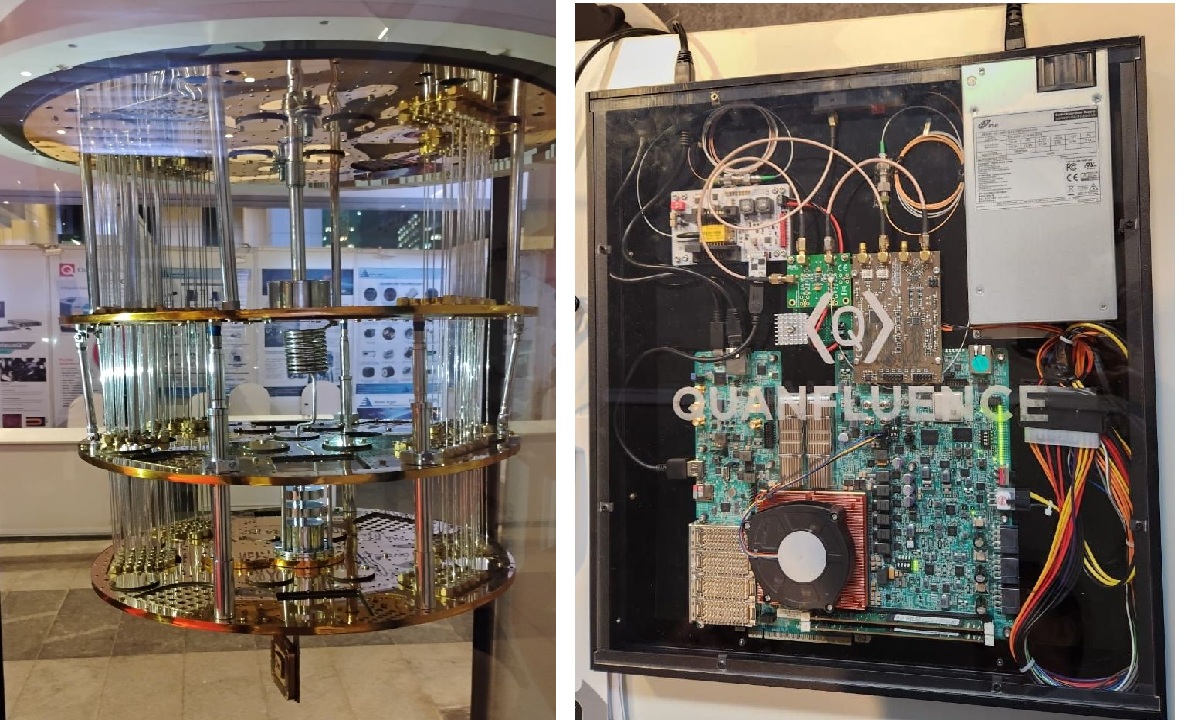
Some of the hardware models exhibited at the QIB – 2025 conference.
Left: Quantum Computer. (company – QPIAI), Right: Coherent Ising machine (company – Quanfluence)
Prof. Gross, who delivered the keynote lecture, emphasised that India’s GERD (GDP to expenditure on Research & Development) percentage has to increase substantially. “Scientific discoveries and inventions must be indigenous. Self-reliance is the only key for effective implementation of the Make in India mission,” he stressed.
Dr. L. Venkata Subramaniam, IBM’s Quantum India Leader, mentioned that sufficient academic research on Quantum technology has already been done, and it is the right time for industry and venture capitalists to step in and take the lead. He also said that research must be translated from university labs to market-ready products.
Venture capitalist and investor Naganand Doraswamy highlighted that India is traditionally a software exporter and thus, there is a sense of suspicion related to other technology domains, including Quantum. He says that, at a global level, it is difficult to find buyers for deep tech and hardware products of Indian origin, and that fact needs to be addressed.
Prof. Sunil Nair, Project Director of I-Hub, Quantum Technology Foundation of Indian Institutes of Science Education and Research, IISER, Pune, said that earlier, research in universities was happening in isolation, and there was a lot of overlapping and repetition. But with the setting up of the National Quantum Mission, an Indian government initiative launched in April 2023 aimed at making India a leader in the field of Quantum technology, universities are given grants and are assigned specific research tasks, making them accountable for time-bound completion of projects.
National Quantum Mission chairman, Ajai Chowdhry, said that once the capabilities of Quantum computers mature, financial institutions, along with many other industries, are at risk of serious security breaches and data encryption-related issues. He says that if Indian companies don’t adapt to Quantum technology now, they will regret it soon and face an existential threat. He also highlighted several steps taken by the Central government in this regard.
While speaking to the Voices, Kanishka Agiwal, VP of sales, QPIAI India Private Limited, a Quantum computer startup, said that the government is proactive in building favourable Quantum ecosystems. But, he also mentioned that the import duties on hardware components are a financial burden for the company and urged that they needed to be incentivised.
Ashwin Dev and Bhagya, from Quanfluence Private Limited — a startup — were happy with the outcome of the conference, as many delegates visited their exhibition stall and showed business interest in their novel products. They also urged the Karnataka government to resolve traffic problems, reduce travel times, and create a favourable environment for a better work-life balance.
“The conference was very insightful, and it was an opportunity to see the latest developments, do self-assessment of our technical skills, get inspired and updated.” Said P.S. Lochan and Ramaa Gayatri, 3rd year engineering students at New Horizon College of Engineering, Bengaluru, while speaking to The Voices.
Copy Editor: Akruti Rao Kandikonda

